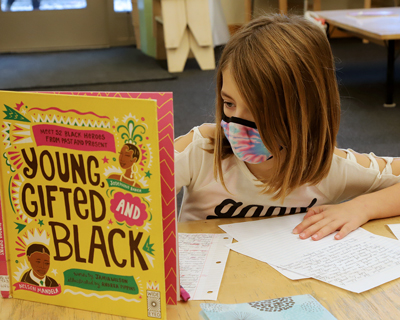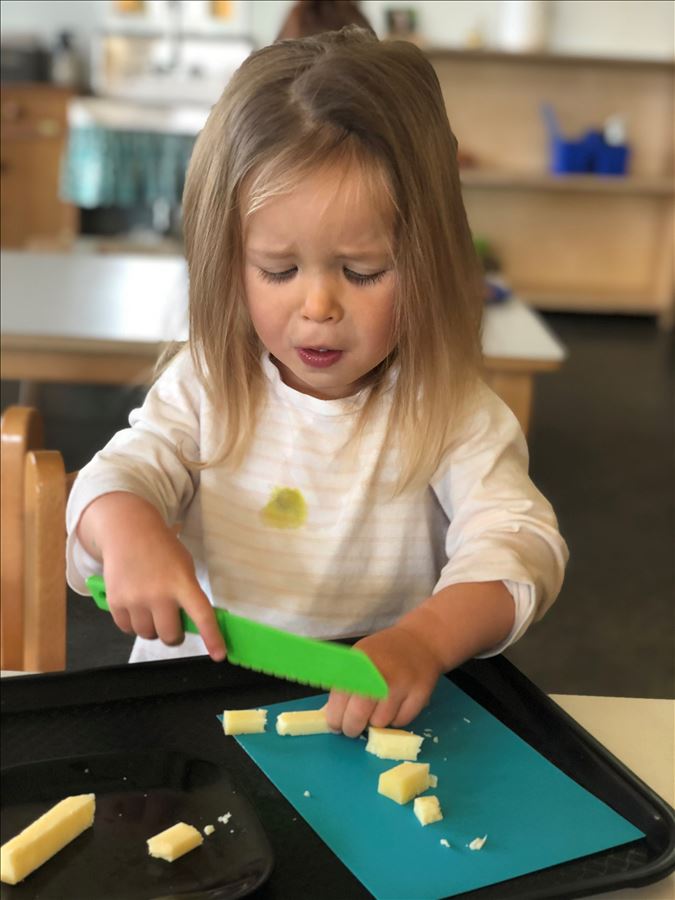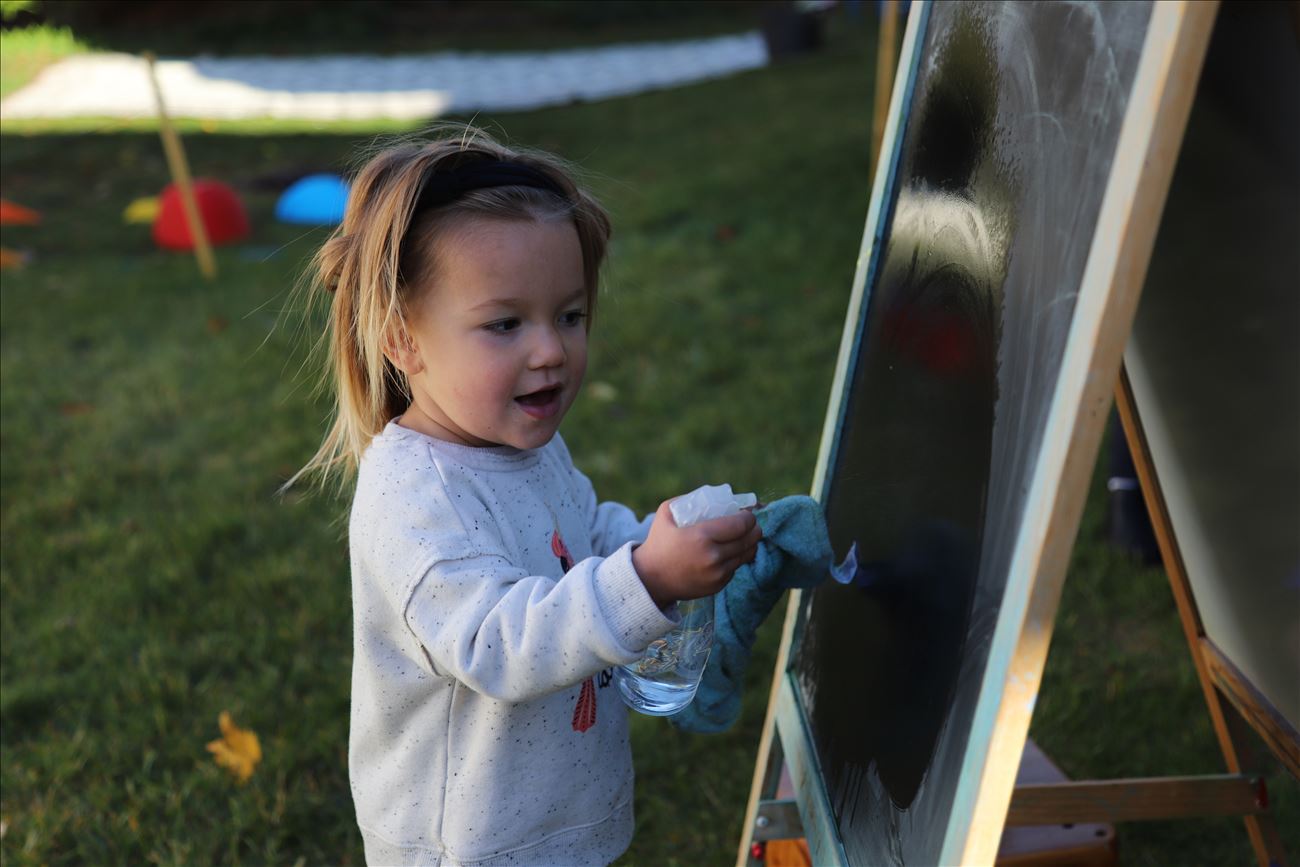Dr. Montessori fought for peace among people and nations. She was part of the League of Nations - the predecessor of the United Nations. It is in our training as Montessori educators to create a community that is just, inclusive, and welcoming to all.
Author Blair Imani writes “kindness won’t end racism, anti-racism will end racism.” As Montessorians, we know that teaching kindness is not enough. That is why we are actively engaging in anti bias and anti-racist (ABAR) education.
 To continue the work we started when Jen Cort visited our school in October 2018, our staff read This Book is Anti-Racist by Tiffany Jewell and discussed it in small groups this fall. It is an impactful and meaningful book. It is also a guide in how to talk to young people about bias and racism. Many students in the school have read chapters with their teachers and engaged in the activities.
To continue the work we started when Jen Cort visited our school in October 2018, our staff read This Book is Anti-Racist by Tiffany Jewell and discussed it in small groups this fall. It is an impactful and meaningful book. It is also a guide in how to talk to young people about bias and racism. Many students in the school have read chapters with their teachers and engaged in the activities.
We learned from Britt Hawthorne, when she visited our school virtually in October 2020, that ABAR begins with the self. We name our own identities and we help the children with this as well. We uncover our biases and work to remove them. We have books and materials that reflect all people.
Our ABAR committee met throughout the summer talking about our dreams for the school. One of our biggest wishes was to engage with the families in our school community. During the recent months of civil unrest, I spent time gathering resources to share with you which are now present on our website. The ABAR committee stepped in to add resources for all age levels.
This work is critical toward creating a world that is inclusive for all people. We hope you will join us on this journey.
TCH Parent Book Club
Dec 10, Jan 7, Jan 21, and Feb 4 at 8 p.m. via Zoom
We will start by reading This Book is Anti-Racist by Tiffany Jewell. You can purchase this book locally through Horizon Books. Please let us know if you plan to participate by completing this Google form.
Children naturally want to do things for themselves. Regardless of their age, we have all seen this drive for independence emerge in our children and students. At times, it can feel like a great accomplishment; at other times, a challenge. For all of us who care for them, a real challenge exists in allowing children to encounter struggle. We love them and we don't want them to become frustrated. We want to protect them and not see them fail. This is a natural reaction. However, we know that it is through the act of doing that we learn about our abilities and strengths, about our challenges and areas for growth, about how to struggle and to overcome. And it is these daily lessons, experiences, and encounters that aid their belief in themself, their self-confidence, and their self-esteem.
As we guide with this perspective, we navigate the balance of providing just enough support, without becoming an obstacle in their independence. As they grow and change, this balance evolves and they often need less support than we realize. So today, take a step back. Observe. Allow your child to try. Allow your child to struggle a bit. They may surprise you in what they're able to work through on their own.
To allow young children to do things for themself is both an act of faith and an act of love - communicating we believe in them and their ability to succeed, and that we care about their growth as a human being.
To explore further, Nichole Holtvluwer has a well-written blog post on the topic.

